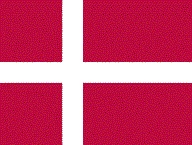The Nordic and Baltic countries are currently represented at the Executive Board by Susan Ulbaek , Executive Director (ED). In this capacity, she engages in direct consultations and negotiations with other Executive Directors and World Bank Group Management in setting the institution’s strategy and policy priorities.
The ED represents the constituency when considering and deciding on IBRD loan and guarantee proposals and IDA credit, grant and guarantee proposals made by the President, and it decides on policies that guide the Bank's general operations. The ED is also responsible for presenting to the Board of Governors, at the Annual Meetings, an audit of accounts, an administrative budget, and an annual report on the Bank's operations and policies as well as other matters.
The Nordic-Baltic ED is member of the Committee on Development Effectiveness (CODE). CODE supports the Executive Board in assessing the development effectiveness of the World Bank Group, provides guidance on strategic directions, monitors the quality and results of World Bank operations and oversees/liaises on the work of the entities that are part of the World Bank Group's accountability framework. The Nordic-Baltic chair is also a member of the CODE Sub-Committee and Vice-Chair of the Human Resources Committee. The HRC serves to strengthen the efficiency and effectiveness of the Board in its strategy, policies, practices and alignment with WB business needs.
The ED is assisted in the Nordic-Baltic Office (NBO), by an Alternate ED, three Senior Advisors, four Advisors, an Executive Assistant and a Program Assistant.
Each year, the office reports to the constituency countries through an Annual Status Report. See Office Reports.





































